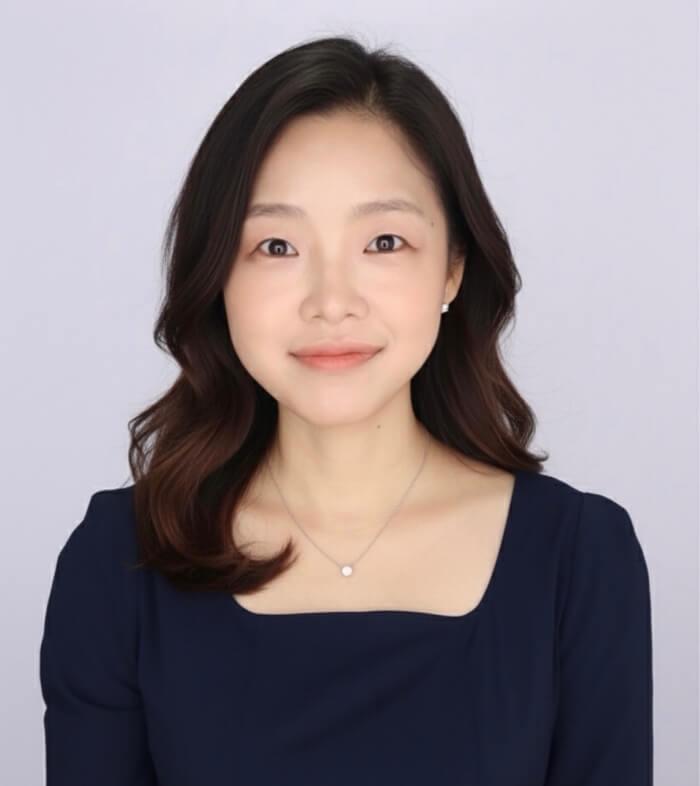Dr. Jihae Cha

Dr. Jihae Cha
Assistant Professor, International Education and International Affairs
School: Graduate School of Education and Human Development
Department: Cross-Disciplinary, Educational Leadership
Contact:
- International and Comparative Education
- Policy Issues in International Education: Developing Countries
- Planning Education Reform in Developing Countries (Project Design and Management)
- Educating Those Out of School
- Education in Emergencies and Protracted Displacement
Selected Recent Publications:
Cha, J. (2026). Examining School Persistence of Students in Kenya’s Kakuma Refugee Camp through Cultural Wealth Framework. In: Zajda, J., Kubow, P. (eds) Globalisation and Education for Refugee and Displaced Children. Globalisation, Comparative Education and Policy Research, vol 54. Springer, Cham. https://doi.org/10.1007/978-3-032-10265-2_6
Cha, J., & Choi, M. (2025). “By Creating My Narrative, I Establish My Identity”: Reflections of Students With Refugee Backgrounds in a Year-Long Storytelling Project. Journal of Research in Childhood Education, 1–16. https://doi.org/10.1080/02568543.2025.2595096
Cha, J., Engel, L., & Cho, I. (2025). Revisiting Case Studies. In Thomas, M., Jules, T., Schweisfurth, M., & Shields, R. (Ed.), The Bloomsbury Handbook of Methods in Comparative and International Education.
Jeong J, Cha J. (2025). Barriers to Promoting Structural and Relational Integration Among Students with Refugee Backgrounds in the South Korean Education System. Social Sciences, 14(10):582. https://doi.org/10.3390/socsci14100582
Cha, J. (2024). What’s Pushing Them Out of School? Dropout Trends and Factors for Refugee Children and Youth in Kakuma Refugee Camp. International Journal of Educational Development.
Cha, J. & Galle, L. (2024). The Influence of ‘Hidden’ Costs of School Uniforms for Refugee Students in Kenya. Compare – A Journal of Comparative and International Education.
Cha, J., Shepard, D., Cho, M., & Jeon, A. (2024). Children and Youth’s Belonging in Protracted Displacement: A Mixed-Methods Study in Kakuma Refugee Camp. Refuge: Canada’s Journal on Refugees, 40(1)1-18
Choi, M., & Cha, J. (2023). “Stories Told by Refugee Youth: Alternatives to Dominant Narratives.” International Journal of Qualitative Methods, 1-19.
Cha, J., & Choi, M. (2023). Children and Youth as “Agents” in Displacement: Young Girls' Stories of Motivation, Action, and Change in Kakuma Refugee Camp. In Education for Refugees and Forced (Im) Migrants Across Time and Context (pp. 35-51). Emerald Publishing Limited.
Paw, M., Choi, M., & Cha, J. (2022). “Voice, identity and listening: Reflections from a refugee.” Forced Migration Review, Issue 70. https://www.fmreview.org/
Cha, J. (2020). Refugee Students’ Academic Motivation in Displacement: The Case of Kakuma Refugee Camp. Journal on Education in Emergencies’ Special Issue on Refugees and Education, Part II, 5(2), 108.
Mendenhall, M., Cha, J., Falk, D., Bergin, C., & Bowden, L. (2020). Teachers as Agents of Change: Positive Discipline for Inclusive Classrooms in Kakuma Refugee Camp. International Journal of Inclusive Education, 1-19.
Buckner, E., Spencer, D., & Cha, J. (2017). Between Policy and Practice: The Education of Syrian Refugees in Lebanon. Journal of Refugee Studies, 31(4). 444-465.
- November 2024 - Dr. Jihae Cha co-published an article with GSEHD alumna Laura Galle (master's, International Education) titled, "The influence of ‘hidden’ costs of school uniforms for refugee students in Kenya," in Compare: A Journal of Comparative and International Education. In addition, Dr. Cha published an article in the International Journal of Educational Development titled, "What’s pushing them out of school? A mixed methods approach to examining primary school dropout in Kakuma Refugee Camp in Kenya."
- June 2024 - Dr. Jihae Cha and colleagues published an article in Refuge: Canada’s Journal on Refugees titled, "Children and Youths’ Belonging in Protracted Displacement: A Mixed-Methods Study from Kakuma Refugee Camp." They conducted a mixed-methods study among students in Kakuma Refugee Camp in Kenya to examine the roles of knowledge, experience (direct or indirect), language, and schooling in students’ sense of belonging to their home country and intention to return.
- February 2024 - Dr. Jihae Cha, along with doctoral students InJung Cho and Doo Rhee Lee (both in the Ph.D. in Education's Comparative and International Education concentration) presented as part of a panel at the Power and Politics of Localization Conference, convened by the Humanitarian Action Initiative (HAI) housed in GW's Elliott School of International Affairs.
- September 2023 - Dr. Jihae Cha, along with Dr. Minkyung Choi from Montclair State University, published the article, "Stories told by refugee youth: alternatives to dominant narratives," in the International Journal of Qualitative Studies in Education.
- September 2023 - Dr. Jihae Cha published a chapter online titled, Children and Youth as “Agents" in Displacement: Young Girls' Stories of Motivation, Action, and Change in Kakuma Refugee Camp. In this book chapter, Dr. Minkyung Choi, Assistant Professor of Literacy Education at Montclair State University, and Dr. Cha examine the concept of “everyday agency” in children and youth’s daily decisions and actions in a highly restrictive environment. They find that children and youth -- even amidst displacement -- are constantly exercising agency and/or are actively involved in “agentic practices” on a spectrum consisting of three major categories: thinking, action, and change. The chapter is part of the book, Education for Refugees and Forced (Im)Migrants Across Time and Context: Volume 45.

